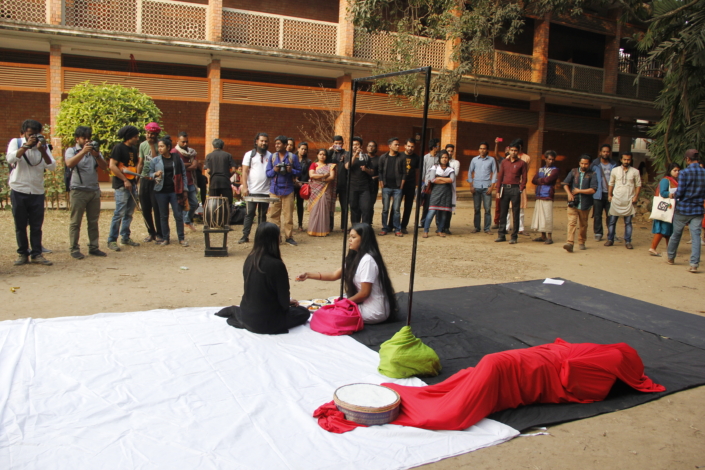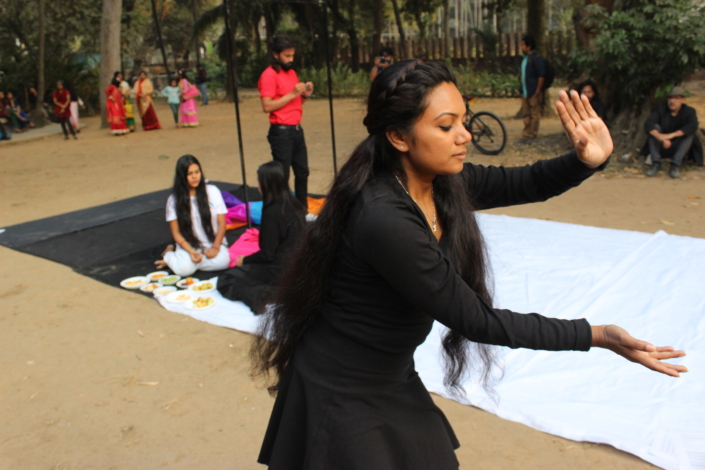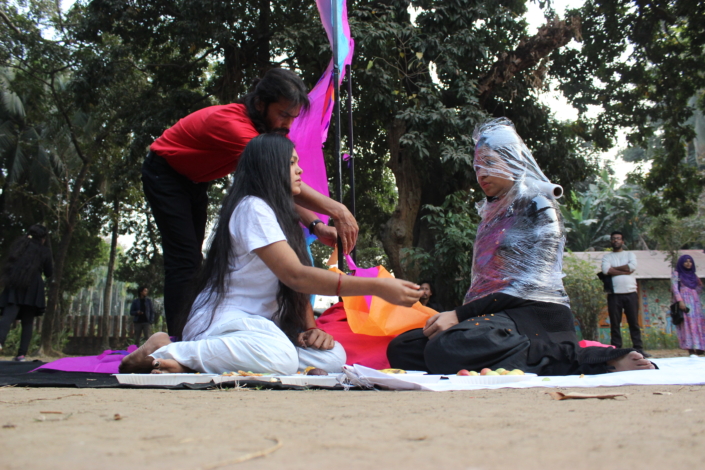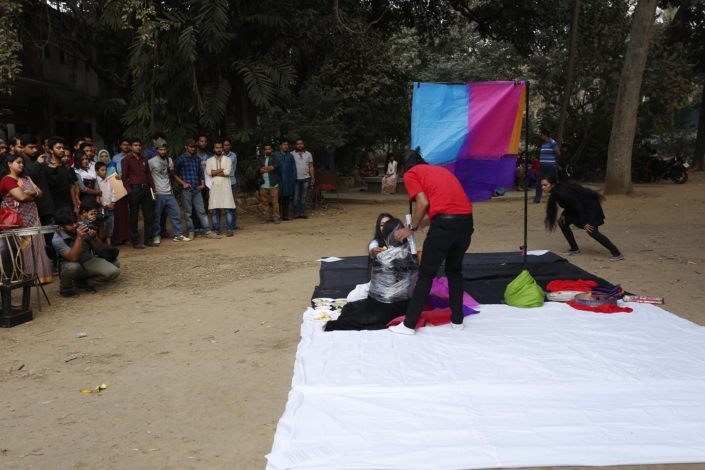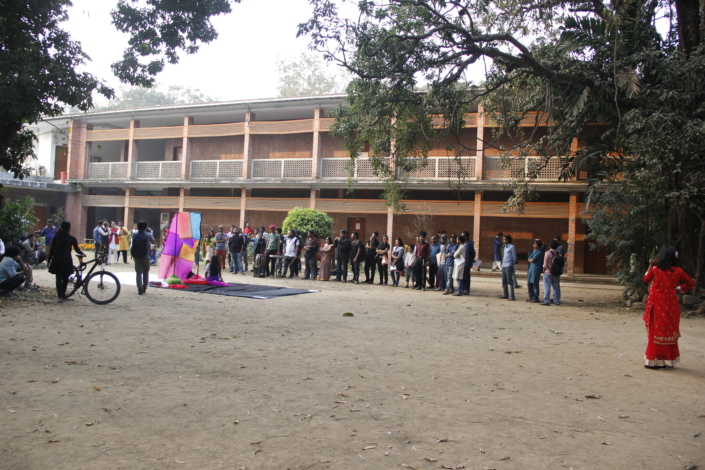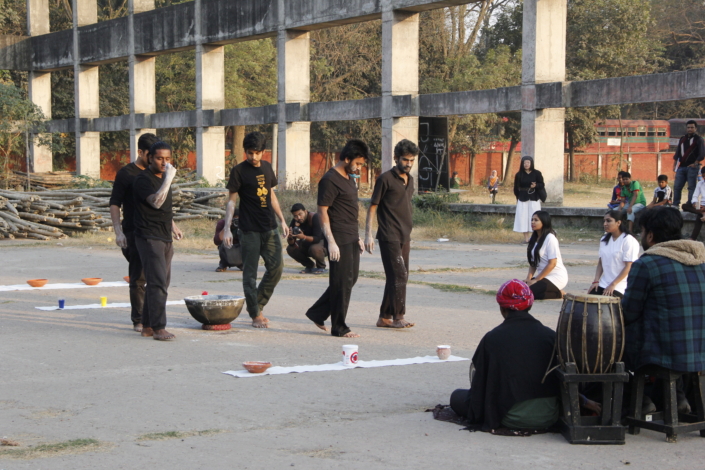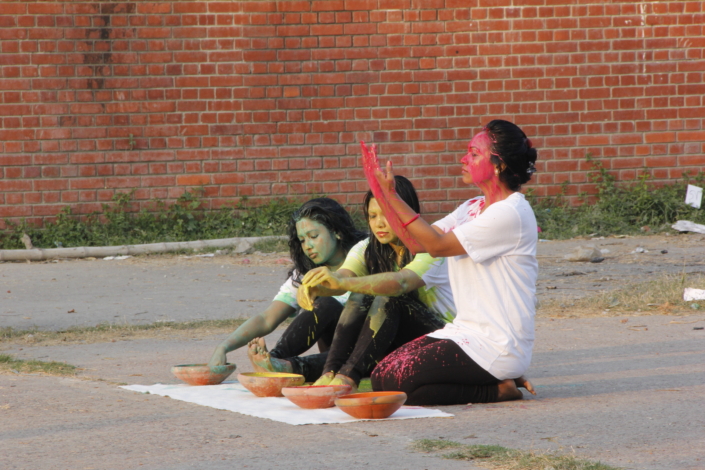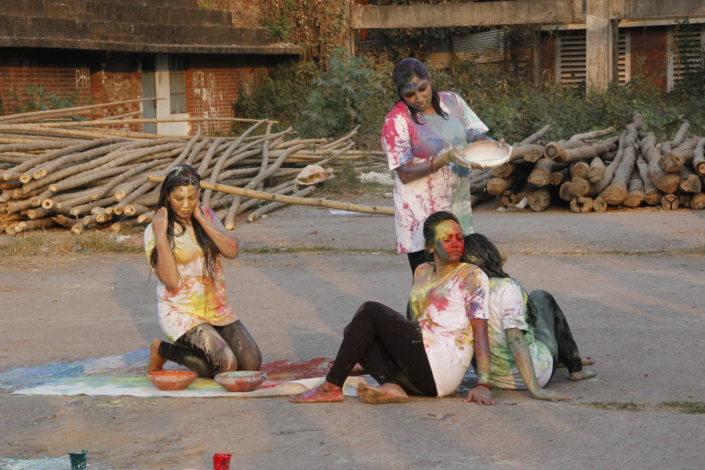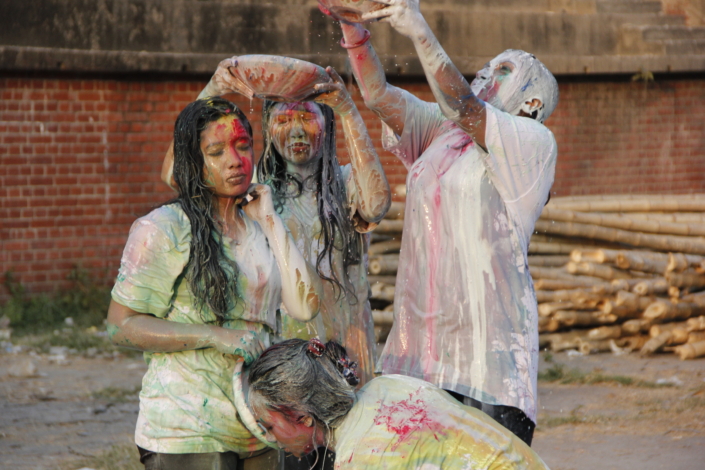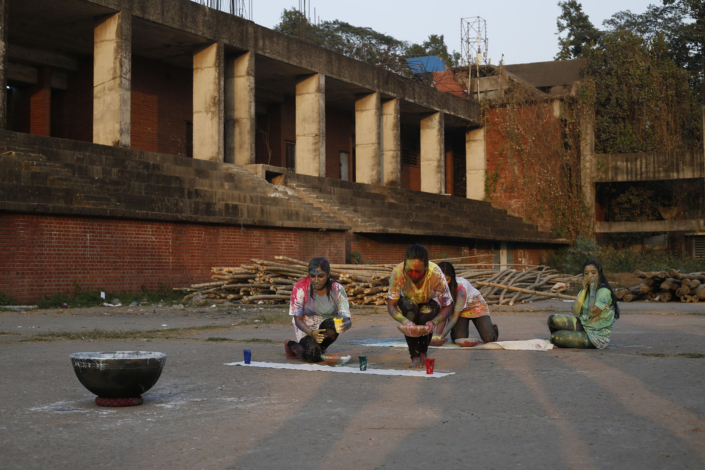ABS Xem received his academic education from the Faculty of Fine Arts of the University of Dhaka, completing his Masters in 2009. He performs artworks by blending music with theatrical elements.
ABS Xem is a Dhaka based artist with multidisciplinary experiences that has shaped his artistic career. He usually works on performance arts, installation arts and video arts. Since 1999, he has been involved with music and has also founded an extreme metal band named Satanik. In 2006 he joined a leading theater group named Prachyanat and is still an active member. He also writes stories and plays. Lyric writing, photography and visual direction are some of his various interests. He joined a folk band in 2009 that quickly became one of the most popular bands of Bangladesh known as Joler Gaan.
Some of his notable artworks include ‘Border of Red Drops’, ‘To the Sultan’, ‘Adam and Eve’, ‘Rising of the Demon’, ‘Prosperity, Struggle & Extinction’, ‘The Cage’ and ‘My Body Your Canvas’.
Prachyanat
Prachyanat is a leading theater group of Bangladesh which was founded by a handful of young theater enthusiasts in 1997. Within two years of its existence, Prachyanat achieved the distinction of being the best theater group for the year 1999. Awards and other distinctions were quick to follow ─ such as The Best Theater Group, The Best Play of the Year, The Best Light Design and so on. Apart from producing a good number full-length plays, all of which have been critically acclaimed and appreciated by the theatre lovers at home and abroad, Prachyanat has many different programs. A crowning success of Prachyanat is the establishment of ‘Prachyanat School of Acting and Design’ in the year 2001. The Theater in the Open, Prachyanat for Children, Theater–lab Production, Prachyanat Research Cell, and the Musical Ensemble ― are all part of the group’s creative approaches.
Work 1
‘Prosperity, Struggle and Extinction’
Human mind is always overwhelmed by creation and destruction. We enrich, beset or destroy ourselves unknowingly, as if we are playing with ourselves.
We can sacrifice lives to save the dignity of our language, but it is also us who can insult our own dialects. It is us who make sure that tribal languages have no place in our culture and who finds so called modernism in some foreign language. We have many faces hidden within us that we wear for our convenience.
Work 2
‘Imposed Hospitality’
As if siblings born to one mother, languages or cultures are branches of the same wave. It is normal that we will exist in their original forms. The philosophy of promoting one culture to the other or establishing it as the most prominent one is unnecessary and unacceptable. To establish one culture as the supreme to all others is nothing but farce, another form of rape. As a consequence of it, the individuality and originality of different culture perish over time. In exchange, something hybrid, something grotesque appear in the name of culture.

